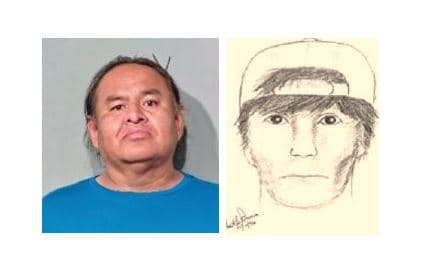Whiteriver Man Admits to 1996 Lakeside Murder, Closure for Family
Romeo Clarence Massey Jr., 45, of Whiteriver pleaded guilty in connection with the 1996 Pinetop Lakeside killing of Jody Hemphill, bringing a decades long cold case to resolution and offering long awaited answers for the victim's family. The development matters to residents across Apache County because it highlights renewed investigative cooperation between local law enforcement and county courts, and underscores how cold cases can be resolved years later.
Listen to Article
Click play to generate audio

Romeo Clarence Massey Jr., 45, of Whiteriver has pleaded guilty in the long cold case surrounding the 1996 murder of Jody Hemphill. Hemphill was found stabbed to death at a store in Lakeside in 1996, and the investigation went cold for years before new leads prompted an arrest in June of 2023. The plea resolves a case that for nearly three decades left a family seeking answers and communities in northeastern Arizona grappling with an unresolved violent crime.
Local law enforcement reopened the investigation after developing recent leads that investigators said connected Massey to the killing. Prosecutors and investigators in Navajo County worked through Holbrook area courts as the case moved from arrest to prosecution and eventually to a negotiated plea. Earlier court paperwork mentioned a possible 25 year term as part of sentencing discussions under the plea agreement. Details of the specific plea terms were reported in court filings and processed in the Holbrook and Navajo County judicial system.
Hemphill's death in 1996 was a jolt to small communities across the Pinetop Lakeside area and beyond. At the time the killing left lingering questions and a docket that yielded no conviction. The reinvestigation, which culminated in the 2023 arrest, demonstrates renewed attention from detectives and prosecutors who reviewed old evidence, pursued new investigative avenues, and coordinated across agencies. That effort ultimately brought the case back into active prosecution more than two decades after the crime.
For residents of Whiteriver and Apache County the case carries both legal and social resonance. Families affected by violent crime often live with a sense of uncertainty that affects everyday life, community trust, and relationships with law enforcement. The guilty plea provides a measure of closure for Hemphill's family after many years, and it signals to the broader community that cold cases may still be solvable with persistence and interagency cooperation.
The handling of this case also points to the jurisdictional realities in rural Arizona, where investigations and prosecutions frequently require coordination between tribal communities, local law enforcement, and county courts. Proceedings processed in Holbrook and Navajo County courts underline the regional legal pathways such cases follow, and the practical challenges of pursuing evidence gathered long ago.
As sentencing moves forward under the terms disclosed in earlier court paperwork, residents will watch how the court balances the passage of time, the evidence presented, and the interests of victims and the community. For many in Apache County the development brings a difficult but necessary chapter to a close, while reminding local leaders and residents that sustained investigative work can yield results even after many years.


